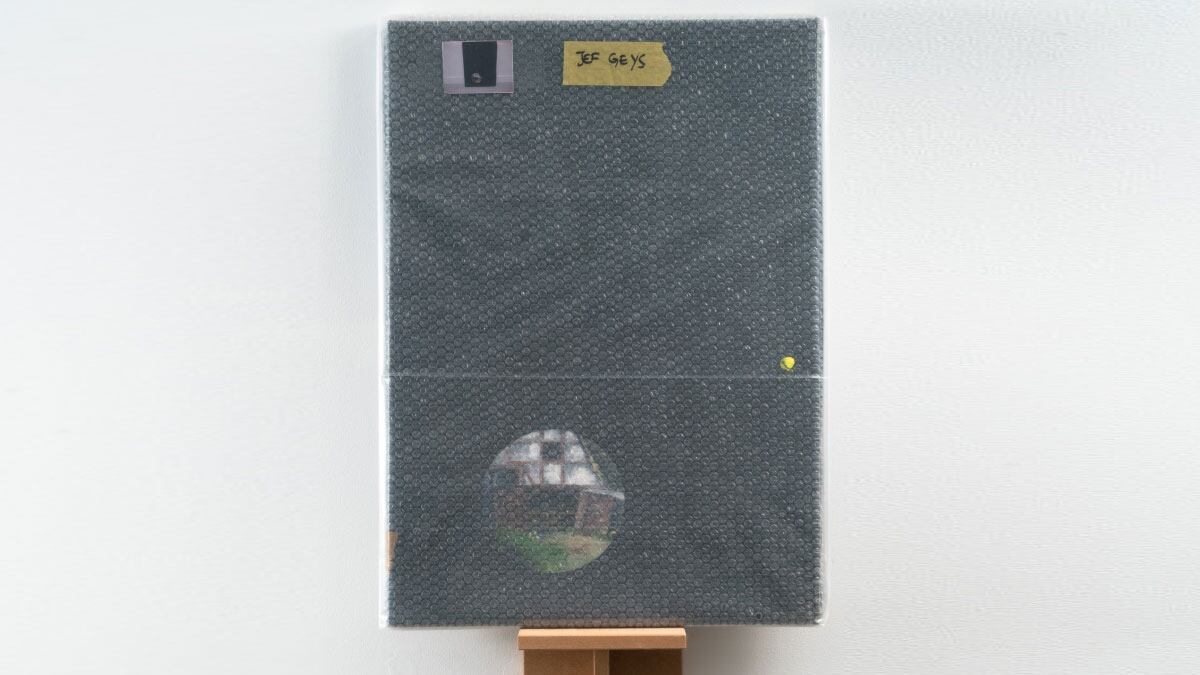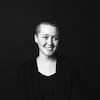When Yale Union was preparing its Jef Geys exhibit, getting the artist's work through TSA was a nerve-wracking ordeal. The late conceptual artist has a series of works called "bubble paintings"—paintings encased in bubble wrap. When two bubble paintings were flown from Geys' native Belgium to YU's Buckman neighborhood building, the organization worried the packaging would be removed in an overzealous security search by a TSA agent who didn't realize the bubble wrap was actually a famed piece of art.
If that sounds frivolous, it's sort of the point. Geys had been poking fun at the art world and playing mind games with curators since his career began in the late 1950s.
Though his work has been widely exhibited in Europe, his legacy has been largely overlooked in the U.S. YU intended its show to be Geys' long overdue American introduction. Then, Geys died in February at age 83. His solo show at YU is one of the last he worked on.
Now, the exhibit feels like an unintentional retrospective. Scattered throughout YU's massive, second-floor gallery are dozens of works that span decades of Geys' career. Some of the works are new versions of old series. Placed on the gallery's hardwood floors are cardboard cutouts of a man's silhouette, painted solid black and covered in neon-colored signatures. Though the cutouts are credited to Geys, he never actually touched them. Last year, curator Nicholas Tammens asked Geys if he could display cutouts the artist made of his own silhouette in the '60s. Geys responded that those works no longer exist, but if he wanted, Tammens could buy cardboard from Walmart, paint it black himself and have Tammens' art students cover it with their autographs.
In that way, YU's exhibit depicts Geys' career as an amused but unceasing sneer at the art world. The two bubble paintings purportedly made it to the show intact, though it'd be impossible to tell if they hadn't. The bubble wrap is a nod to the state in which art accumulates value—in transit from galleries and museums. To drill the consumerist commentary even deeper, one of the paintings is a landscape by late Belgian artist Martin Douven. Douven created mass-produced landscapes by assembly line, first in his home with the help of his nine children, and later in a factory. For his piece, Geys covered one of Douven's landscapes with thick black paint, leaving only a small circle of the scene visible.
It's difficult to make fun of the art world for being esoteric without coming off as esoteric yourself. Geys often exploited that trap and sometimes fell into it—"high-concept yet populist" typically comes across as a contradiction. YU now faces a similar problem. Last month, the organization announced the resignation of Curtis Knapp, one of its executive directors and co-founders. Simultaneously, YU announced that Seattle curator Yoko Ott would replace Knapp. Since its founding in 2008, YU has repeatedly been criticized in the local media for its lack of transparency. Ott has stated she wants to change that, as well as shed YU's reputation as an insular institution.
Still, the current exhibit makes it clear that YU has its finger on the pulse of international art. What set Geys apart from other postmodern pop artists is that his work isn't fundamentally cynical. As ruthless as his sense of humor could be, Geys didn't exclusively treat art as a consumerist joke to be exploited for his own amusement. Across the room from the Douven landscape that's obscured with bubble wrap and black paint, there are 10 more Douven paintings selected by Geys, frameless and arranged in a grid. The bucolic scenes are the kind you'd find in a dusty flea market or grade-school art class—a forest on the edge of a field, a sunset over a choppy ocean.
Displayed next to a part from a luxury car, Douven's landscapes are clearly not immune to Geys' derision. But given that they're totally unadulterated, it feels as if Geys were asking us to at least partially appreciate the paintings. It's hard to deny that they're appealing, if not lovely, with their powder-blue skies, coral sunsets and feathery clouds. For a moment, Geys set aside lofty commentary, and asked us to give in to a base desire for beauty. In moments like that, Geys' work lives.
SEE IT: Jef Geys' solo show is at Yale Union, 800 SE 10th Ave., yaleunion.org. Noon-6 pm Thursday-Sunday, through June 10. Free.

